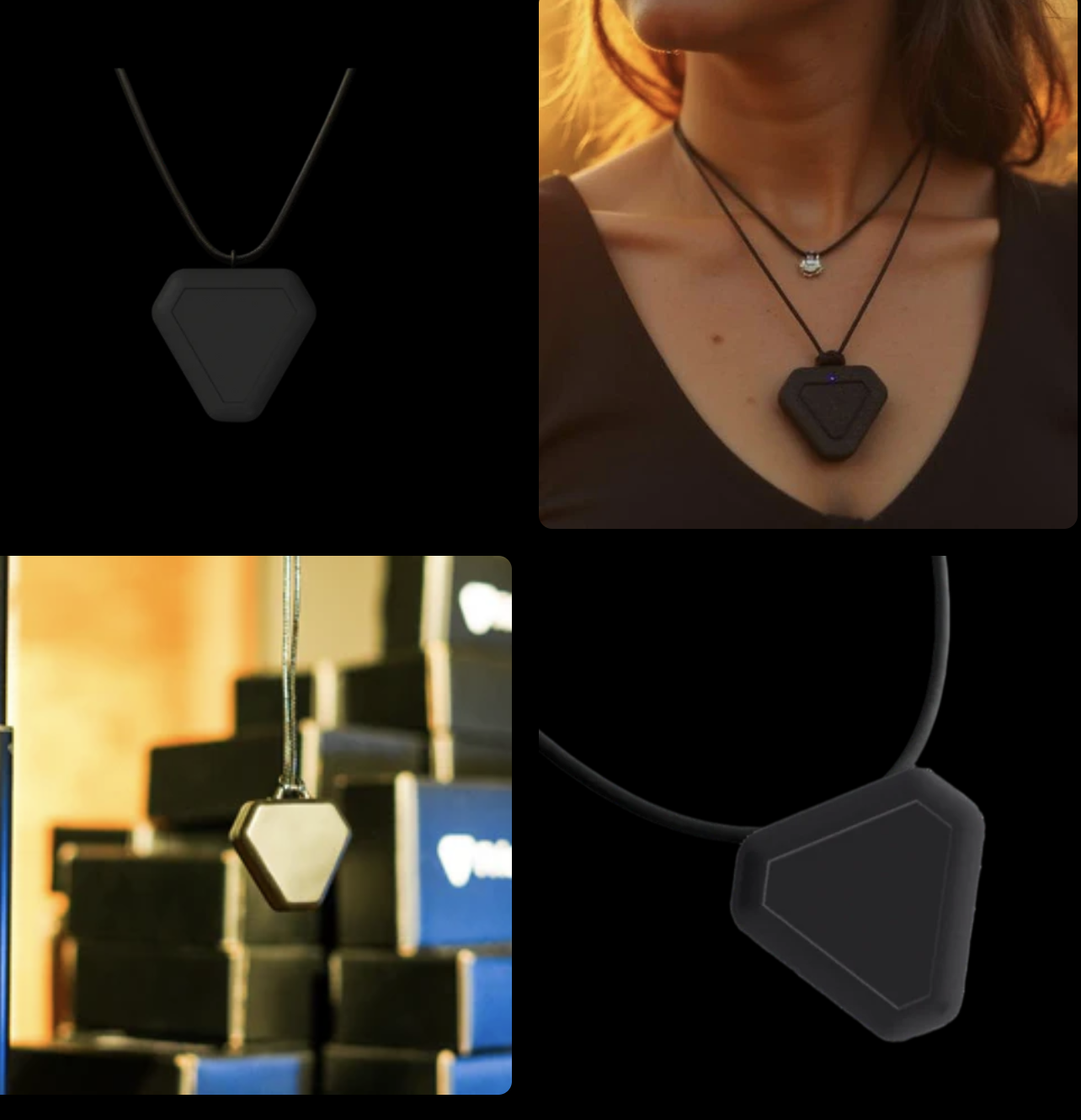Personal data markets powered by wearables

You have tens of conversations per day. Hundreds per week. Imagine you could store and index all of this to quickly find whatever you have ever said.
That would potentially be of use to you, but imagine you could put these thoughts for sale to a network of data? And of course, these stay private on your device.
- The Source:
A wearable captures your conversations, your data, your opinions, your attention, your mind-space. You never send raw audio to the cloud - all processing stays local, and so does the data. It gets processed in a Dappnode, and a data structure gets created: a piece of advertising that says when this data was taken and what it is about.
- The Marketplace: Ask, Pay, Receive (Decentralized & Private):
Someone might be interested in getting some information about what the opinion of people on China tariffs is. They can poll the network in a way like: "How many Memory Units discuss China tariffs in the last 24h? What’s the cost for all insights?" and they get a quote from the network: "602 Memory Units found. Cost: 1000 USDC for full, anonymized insights".
Then they pay You send 1000 USDC to the network, which they get distributed to the users and they receive back structured data as they want it, but also with only the fields that the users want to share.
- The Magic: Structured "Memory Units" (Not Just Raw Data):
On your local Dappnode, the device’s audio is processed privately. It’s tagged and structured into a "Memory Unit":
"Conversation: China tariff discussion (2025-07-10, 14:30). Topic: Import costs. Key Insight: 'Supply chain shifts hitting small manufacturers hard.' Speaker: Alex."
It’s not just audio (in fact, the audio is expensive to store, so we'll probably throw it away); it’s searchable, contextual data you own.
Traditional Data Market | Dappnode’s Decentralized Memory Market |
|---|---|
Big Tech collects your data (without consent) | You own your data (processed locally on your Dappnode) |
Raw, unstructured data (privacy risk) | Structured, contextual insights (privacy by design) |
You pay to be watched | You earn by sharing insights (you set the price) |
Centralized control | Decentralized, user-controlled network |
Who would want to tap into this data?
- Businesses: "I need to know if small businesses are worried about tariffs before launching a new export product. I’ll pay for the latest insights"
- Researchers: "Find all conversations about AI ethics in healthcare from the last week"
- Prediction Markets: "Based on 500+ conversations about housing costs, what’s the market sentiment?"
It really doesn't matter what the use of the data is - the fact that you can access it in a searchable way is the powerful part.
Of course, this vision fails without local processing on your device. Why?
Privacy is Non-Negotiable: Sending raw conversations to a cloud server defeats the purpose: now someone else has your data. Dappnode ensures all processing happens locally – your data only leaves your ownership once you get paid.
Would you put your thoughts and conversations out there to monetize?




